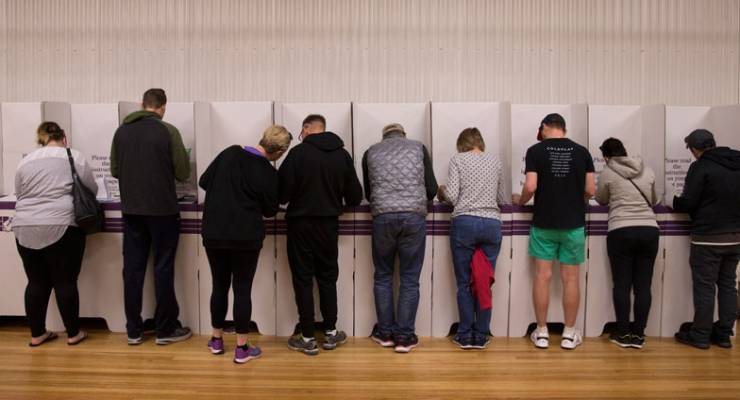
After a decades-long unhealthy obsession with the pollster and its works, Australia’s political class today faces the unfamiliar spectacle of a Newspoll result it knows it can’t take entirely seriously.
Published in The Australian overnight, the poll credits the Coalition with an election-winning lead, as it would need to do to be credible in the current environment. This brings to an end an eerie silence from the Australian polling fraternity, being the first voting intention result since its great debacle at the federal election ten weeks ago.
On top of Newspoll’s longer-than-usual post-election hiatus, Essential Research has for now dropped voting intention from its fortnightly survey, and Nine has announced it has no current polling contract or any immediate plans to acquire one, after earlier bringing us the Ipsos series.
If nothing else, Newspoll — or more precisely, YouGov Galaxy, the pollster behind the Newspoll brand — has once again signalled its market leadership by being the first to put its head above the parapet. Should its rivals record similar results when they return to the fray, the suspicion will persist that they are herding to Newspoll, as they appeared to do to disastrous effect at the election.
However, that doesn’t resolve the difficulty of evaluating Newspoll’s finding that the government only now holds a clear lead, after it was never once so credited through the entire three years of the previous parliamentary term.
The Australian has reported the result with its characteristic bullish confidence, precisely attributing the Coalition’s 1.5% improvement as compared with the election result to the “passage of the government’s $158 billion income tax cuts, drought funding package and national security legislation”.
YouGov Galaxy principal David Briggs also seemed hesitant to concede that anything had been seriously amiss in a column shortly after the election, in which he argued the company’s seat polls and state-level results offered “crucial evidence” that should have alerted commentators to a tighter race than their consensus suggested.
While it’s true that none of the Newspoll and YouGov Galaxy seat polls published in the last week of the campaign showed Labor leading in a seat it didn’t actually win, the voting intention numbers were no less prone than the national polling to understating what proved to be the Coalition’s true level of support.
This was particularly notable in Queensland, where YouGov Galaxy polls recorded dead heats a few days out from polling day in the seats of Forde and Herbert, both of which the Coalition ended up winning by margins of between 8% and 9%.
The pollster’s statewide results from Queensland were never better for the Coalition than 51-49 during the campaign, and while the YouGov Galaxy exit poll landed closer at 53-47, it was still outside the error margin of the 58.4-41.6 thumping that the state’s voters inflicted on Labor on the day.
The impression that methods that had worked well for the pollster in the past were no longer doing so was reinforced with the emergence of the campaign tracking polling it had conducted for Labor, which was only fractionally less favourable to Labor than what was appearing publicly.
More recent commentary from Briggs has been more candid, acknowledging the persistent exaggeration of Labor support and speculating that a “shy Tory effect” may have been at work, using a phrase that was frequently invoked in Britain after the Conservatives defied the polls in 1992 and 2015.
However, the latest poll comes with no insights as to what might have been done to correct for it, and how the methods that today credit the Coalition with a 53-47 lead might differ from those that had it trailing 51.5-48.5 on the eve of an election whose result was exactly the reverse.
In the past, YouGov Galaxy has felt able to justify the opaqueness of its methods on the grounds that its “track record speaks for itself”.
That justification will be finding far fewer takers today than it did before the great shock of May 18.
Do you trust the polls anymore? Write to boss@crikey.com.au and let us know.








No.
I don’t even trust the AEC’s poll anymore.
YouGov was founded in the UK in May 2000 by Stephan Shakespeare and future MP Nadhim Zahawi, at the time both active in the British Conservative Party. In 2017 YouGov acquired Galaxy Research Pty Ltd (“Galaxy”). David Briggs is the man behind the YouGov Galaxy polls published by Murdoch’s tabloid papers.
If anything, now we know that we definitely can’t trust electoral polling perhaps we might focus on policy and holding governments to account. I can still dream, can’t I?
Interesting report on polling in the US on Planet America this week. Seems like the polling party is over which is a good thing.